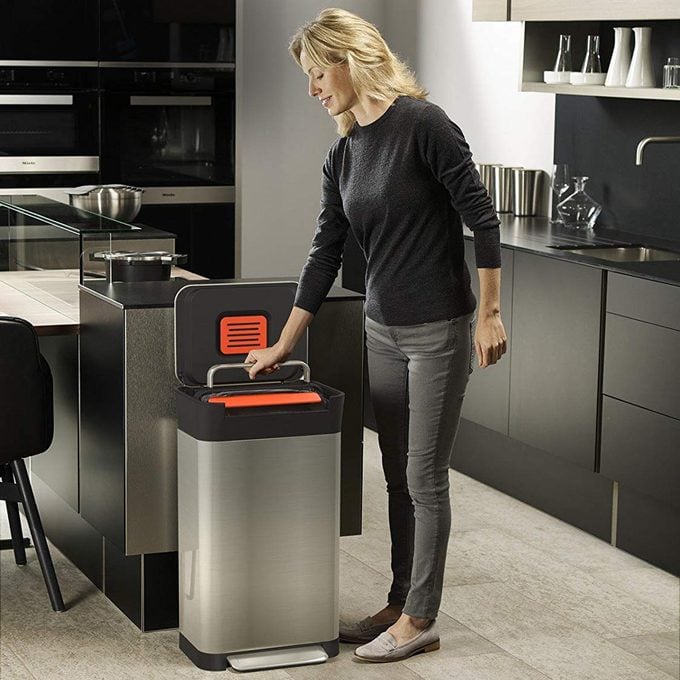The trash compactor isn’t nearly has popular as it used to be, and for good reason.
Everything to Know About Trash Compactors

Your home may have a kitchen trash compactor and you have no idea what to do with it. Or perhaps you don’t remember the last time you even saw one! What’s with the aversion to trash compactors? Why have they become so rare?
M.S. Wells patented the first commercial trash compactor in 1941 as a means for crushing oil cans. By the 1970s, John A. Boyd filed a patent for compacting household trash using hydraulic pressure from a direct water connection. This allowed the garbage to be crushed and turned into one bundle for easy disposal. In 1991, John Bauer improved on this design, creating two compartments for the recyclable trash and the none recyclable trash. Today, trash compactors use even better technology that allows them to handle dry and wet waste, control odors and store more.
Kitchen trash compactor sales have declined over the years, however, and with good reason. Trash compactor sales plummeted from 243,000 units in 1988 to 126,000 in 1992. Ownership dropped to under 3.5% across the nation by 2009. Despite almost every appliance manufacturer offering one for sale to this day, the trash compactor has failed to live up to its potential in modern kitchens.
Aside from price (we’re talking about $1,000 when you factor in installation), the trash compactor failed for various reasons. Consumers felt it took up too much space, either in the cabinet or on the floor. It also left consumers with hard, compacted rectangular-shaped packages that didn’t fit into their round garbage bins. And while the compactor decreased volume, it increased density, making for a full compactor bag weighing more than 30 pounds! This limited who was capable of taking out the trash!
Newer kitchen trash compactor models have, indeed, addressed unpleasant odors with options like a compartment for a charcoal filter, while other models have an odor-reduction disk. But the reputation has been largely solidified, with consumers having complained about the smell of the residue from food packaging and decomposing food waste sitting in the compactor for up to seven days, or until the compactor gets full.
Supposedly, compactors are good for the environment, since they decrease the number of trash bags going into landfills and reduce the volume of trash in the dumpster, which then reduces the number of times per week the dumpster needs to be emptied. Also, the compact trash at landfills helps avoids opening more landfills, and promotes the biodegradation of the trash and produces methane gas. However, some say the trash is too tightly compacted, which can slow decomposition.
While you will likely find advocates for the trash compactor, and if you are intrigued, the only thing to do is try one for yourself!



















